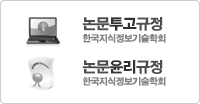 발간년도 : [2017]
발간년도 : [2017]
| 논문정보 |
|
| 논문명(한글) |
[Vol.12, No.2] Evaluation of Japanese Basic Research Policy : Focusing on R&D Expenditure Policy |
|
| 논문투고자 |
Han-Jin Lee, Keun-Bok Kang |
|
| 논문내용 |
Japanese R&D expenditure is classified into two types such as competitive fund and block fund. In the meantime, Japan enacted S&T Basic Law in 1995. Following the law, Japan has made a S&T Basic Plan every 5 years. Since then, the policy paradigm regarding R&D expenditure has been changed into expanding competitive fund and promoting competitive research environment. As a result, the amount of block fund for university professors and researchers has been decreased. Japanese researchers have pursued more popular and short-term oriented research themes rather than challenging or long-term research for getting competitive fund. Meanwhile, Japan’s influence of SCI papers has been decreased from the mid-1990s. Based on the above situation, Japanese Science Community argues that Japan has now been under the crisis of basic research. Even though Japan produces Nobel Prize Winners in science fields every year, relevant organizations and opinion leaders in science community have felt the sense of crisis in terms of its science power. Through the case of Japan, we will be able to draw some lessons. First, we, Korea, have to support researchers with R&D expenditure of block fund type different from competitive fund. Since 1989 which is regarded as the first year for the promotion of basic research, Korea has increased R&D expenditure very sharply but not produced scientific breakthroughs till now, which is called Korean Paradox. We have to overcome this kind of phenomena based on affordable R&D expenditure system. Second, we, Korea need to make research culture and environment suitable for long term, creative and challenging research activities. Basic science is a source to create state–of-the-art technologies which will be able to produce innovative products and new industry. |
|
| 첨부논문 |
|
|
|
|
|

 자료실 > 논문지
자료실 > 논문지 

 자료실 > 논문지
자료실 > 논문지